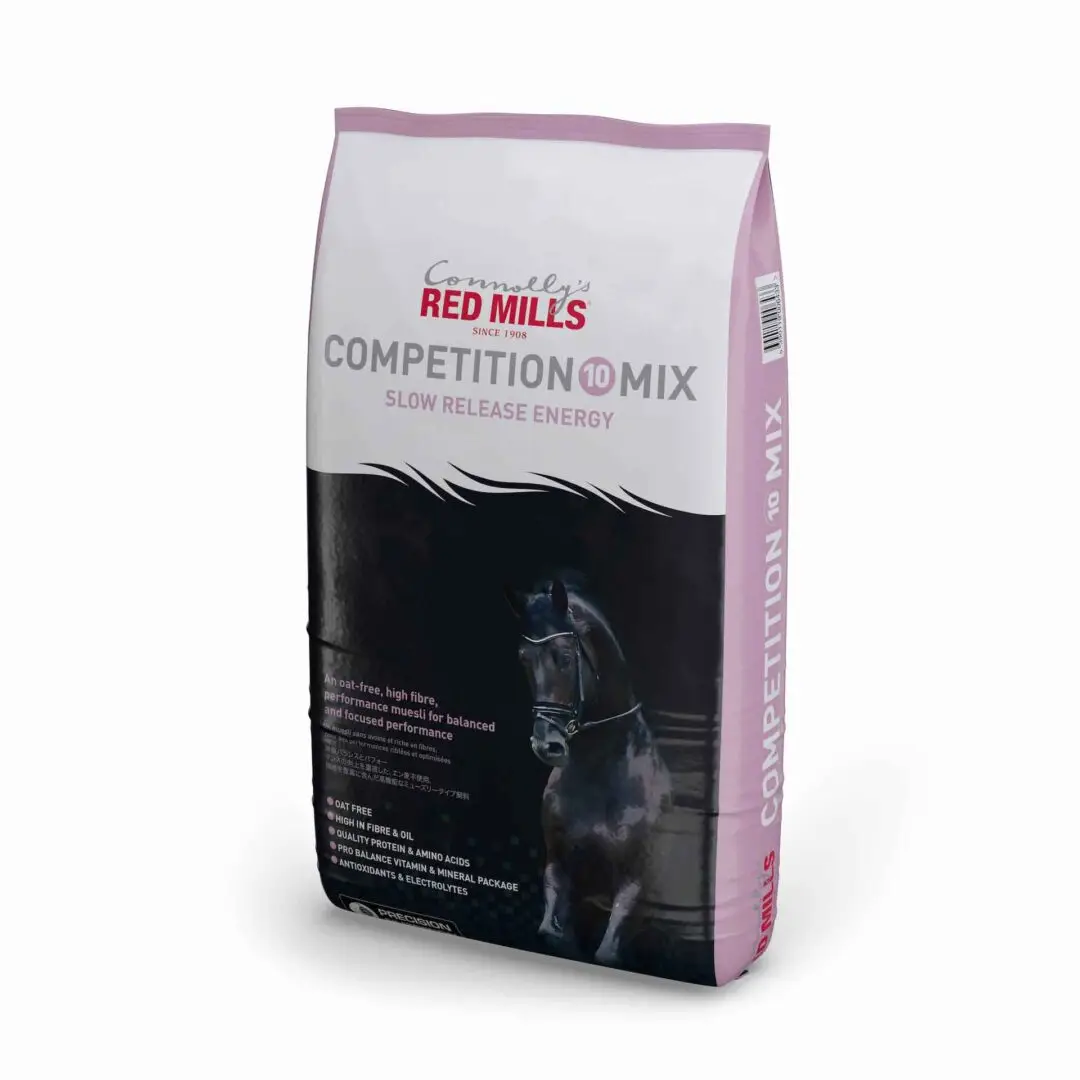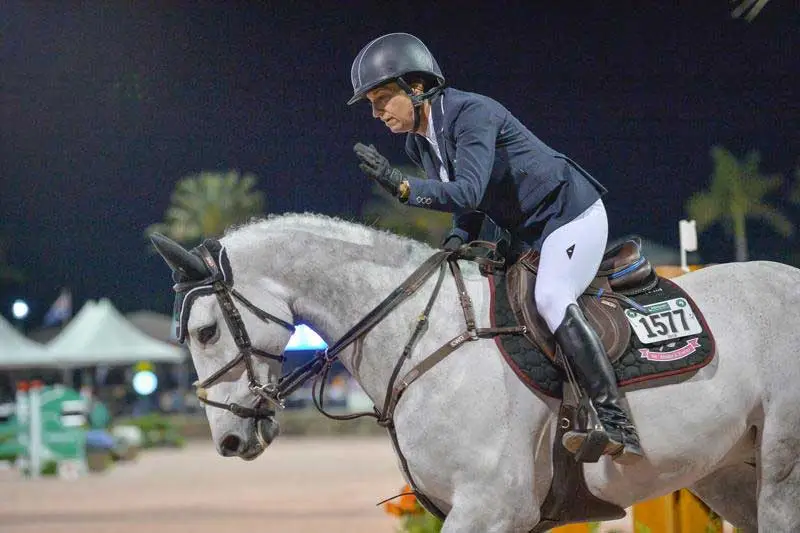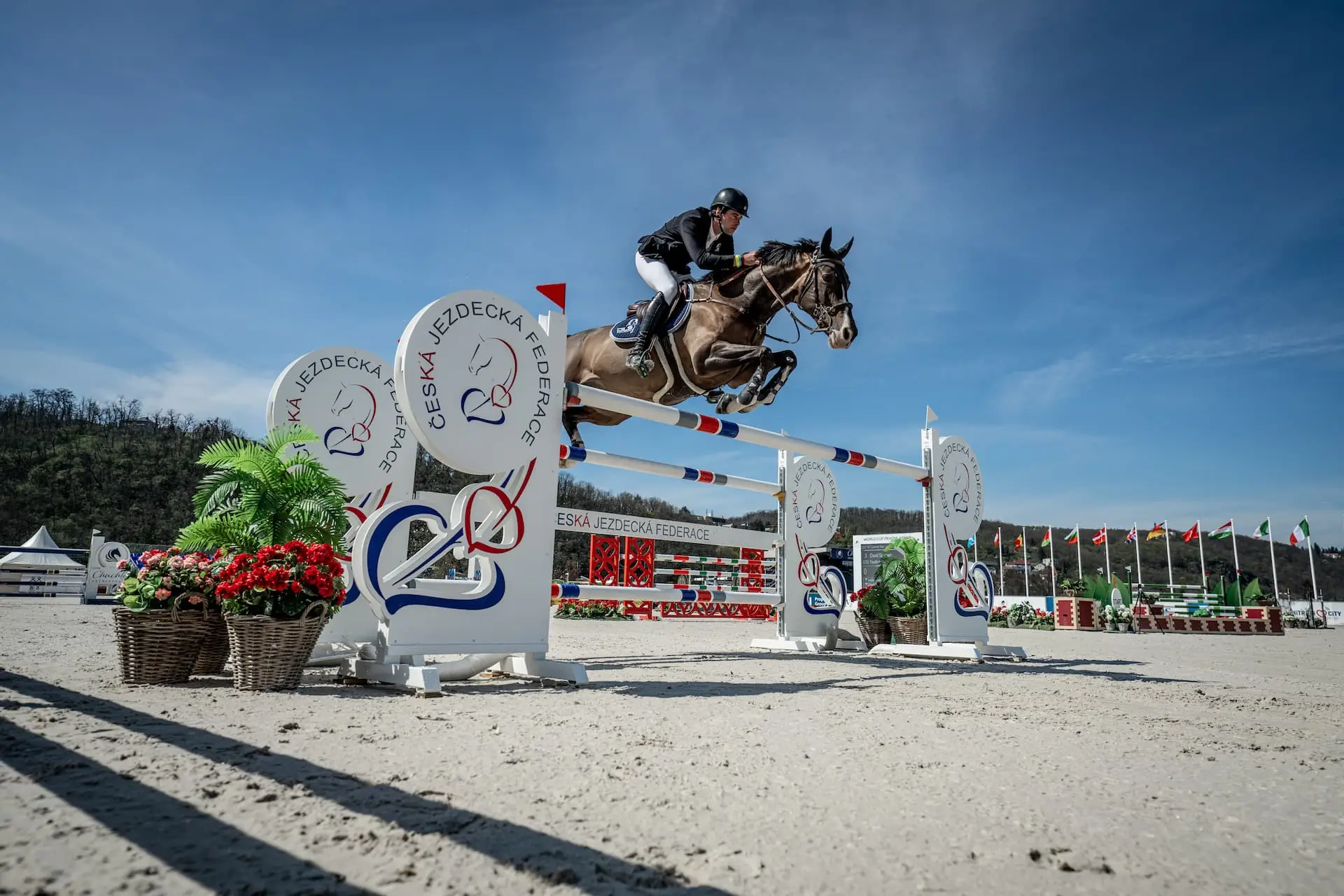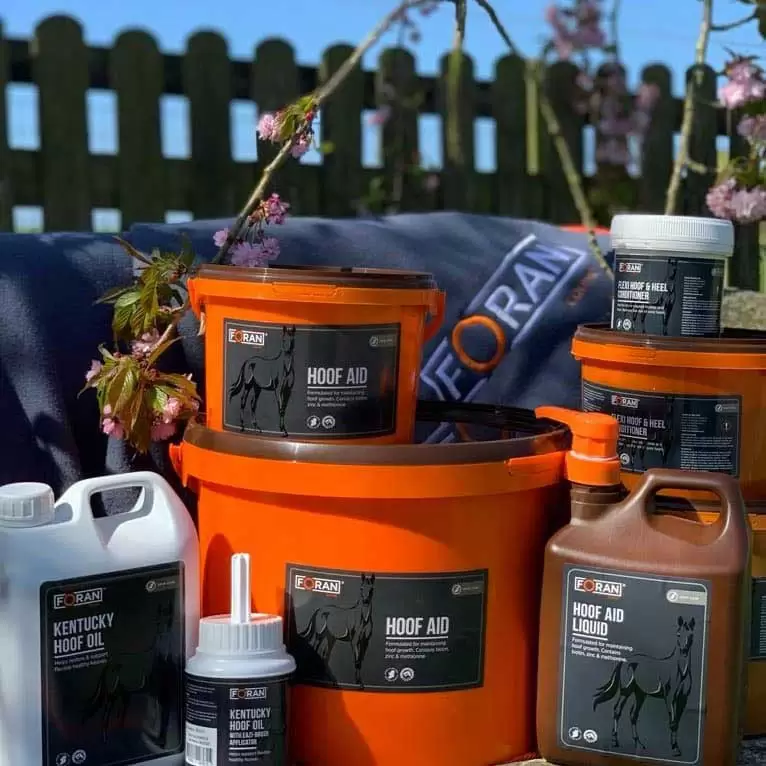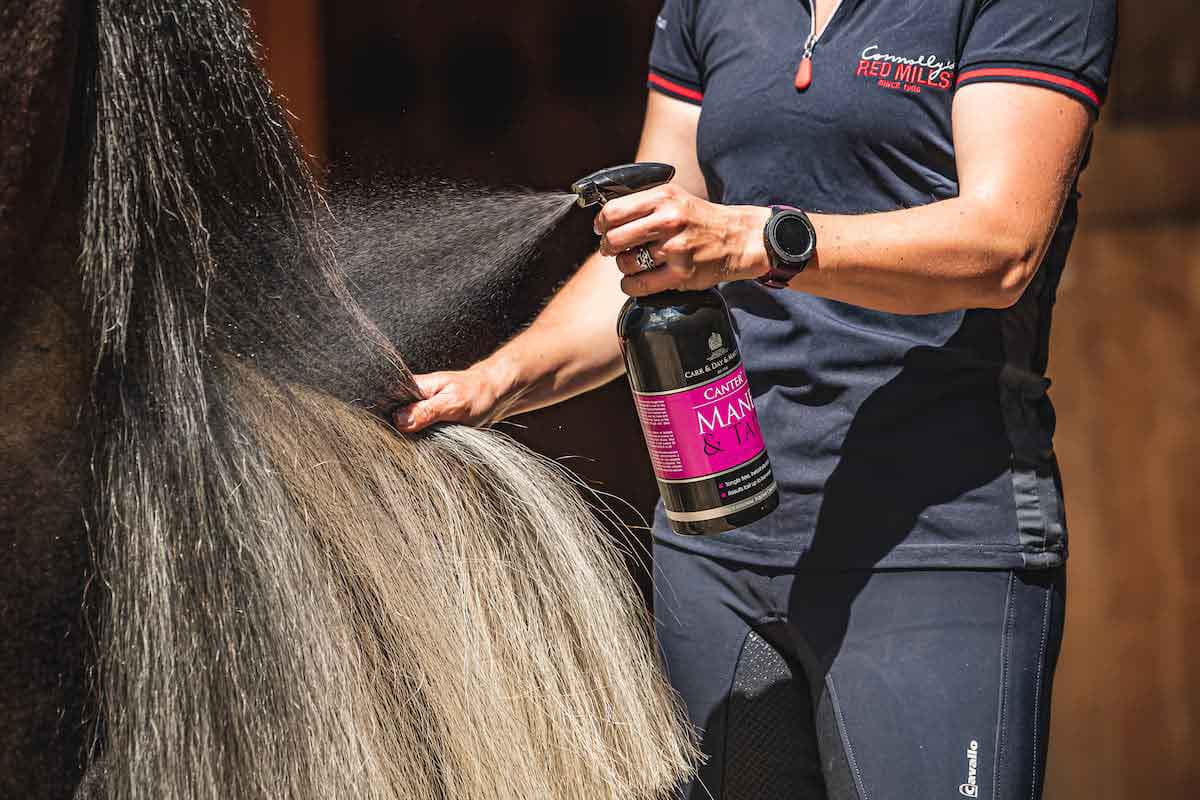A dressage horse needs to be powerful and athletic, with good muscle development, combined with high levels of concentration, obedience, and focus. Feeding to achieve all these goals can be difficult. Each horse is an individual and factors such as condition, temperament, overall health, and any specific concerns also need to be considered.
Best types of Forage for Horses
Feeding forage for horses is a basic, but important, consideration. As well as being essential for digestive health and mental well-being, forage makes a significant contribution towards total daily nutrient intake. There are many kinds of forages available (e.g., grass, hay, haylage, chaff) and each is inherently variable in their moisture, energy, protein, vitamin, and mineral contents.
However, even the very best forage will not provide your horse with a fully balanced diet. This is why feeding a suitable hard feed is so important to their health, well-being, and performance. Hay, especially, can be a concern with its potential dust content and the impact that has on respiratory health. Which forage; how much your horse needs, quality, cleanliness, and consistency, are all important considerations when fine tuning diets for dressage horses.
Learn more about the advantages and disadvantages of forage for horses here!

Assessing your Horse's Body Condition Score
Regardless of whether you are working towards your first Prelim test or competing at Grand Prix level, maintaining your horse at a healthy weight is imperative. Being overweight can have a significant effect on performance plus may have health implications such as excess joint strain, especially during more advance movements. Likewise, an underweight horse is unlikely to have the strength to perform the movements required in a test to the best of their ability.
Knowing your horse’s body condition score (BCS) will help you determine if you are feeding too much, too little or just the right amount of calories. Ideally aim to BCS your horse on a regular basis, at least every 2 weeks. A healthy fat covering is a score of 3 out of 5 with the ribs not visible but easily felt with light pressure. Likewise, unless a stallion, your horse should not have a crest.

Horses tending to hold condition a little too well on mainly forage will benefit from a low intake, nutrient dense feed such as RED MILLS PerformaCare Balancer for horses. Packed full of all the essential micronutrients needed to balance the forage portion of the diet. PerformaCare Balancer contains good levels of quality amino acids to support lean body tissue development. Low in starch and sugar, and completely cereal-grain free, it contains the unique RED MILLS Care Package which includes yeast and the prebiotics MOS and FOS to help maintain a healthy digestive system. PerformaCare balancer can also be used to ‘top-up’ micronutrient intake when feeding less than the recommended level of a mix or cube.
If your horse struggles to maintain weight then consider using a specifically formulated conditioning horse feed to promote condition, such as Connolly’s RED MILLS Conditioning Mix, a cereal-based conditioning muesli. Our Cool’N’Conditioning Cubes on the other hand, are a low starch, cereal-grain free conditioning cube. Both feeds are high in calories and quality protein, so are ideal to promote weight gain when fed at the recommended rates. If your horse still needs some extra help gaining weight, Define & Shine can be added as a top up horse feed. This is a high-calorie pellet rich in key amino acids and omega-3 oils, formulated to promote extra condition and muscle definition. It is ideal for horses requiring extra calories for weight gain in a small volume of feed and those needing additional support for muscle and topline development.
Too much energy and the control and focus may be lost, but too little energy and the horse may lack the impulsion and presence required in the arena. In addition, considering the amount of energy (calories) your horse is receiving, feeding the most appropriate type of energy is critical for performance. The main sources of energy in a horse’s diet are fibre, oil, starch, and sugar. Fibre and oil are referred to as sources of ‘slow release’ energy whilst sugar and starch are referred to as ‘quick release’ energy sources.
For horses that tend to be overly excitable, or anxious, choosing a low starch horse feed and providing a ‘non-heating’ source of energy, like super fibres and oils, is preferable. Our PerformaCare Balancer, Cool ’N’ Conditioning Cubes, and Horse Care Ultra Cubes are all cereal grain free and very low in starch, ideal for horses that can be reactive or stressy. Alternatively cereal based feeds, such as Connolly’s RED MILLS Competition 12 Mix or Conditioning Mix can be immensely useful for dressage horses that tend to be too laid back and lacking in forwardness. These feeds provide highly digestible sources of fast-release energy to help give your horse dynamism and oomph! In between that we have our oat free Horse Care 10 and Horse Care 14 which has an inclusion of oats. Both are low starch and are available as a mix or cube.
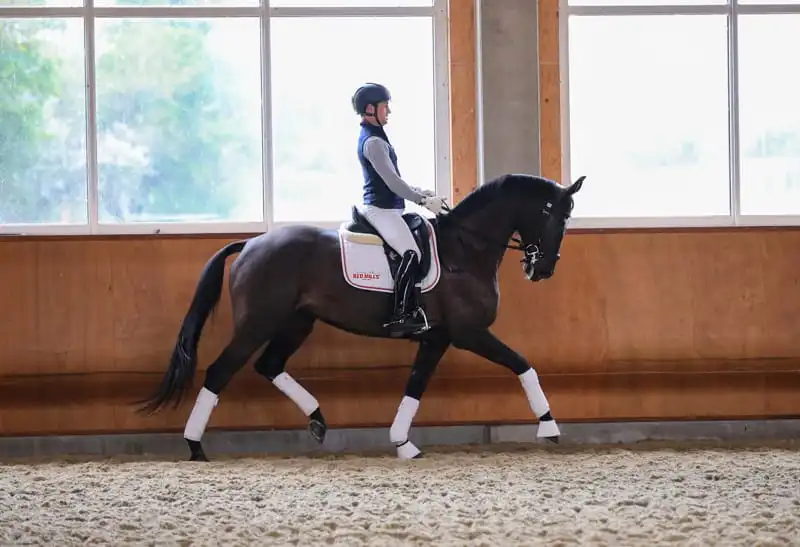
One thing worth remembering is that energy and calories are the same thing. If your horse is a good-doer feeding large amounts of a high cereal-based feed is likely to lead to weight gain, which will not help with energy levels. In these cases, we suggest feeding PerformaCare Balancer to provide the nutrients needed for good health and well-being. A very small quantity of a higher energy feed can then be added to the diet to help boost energy levels. Alternatively, Foran Equine Pre-Fuel Liquid or Gel supplements, are great energy supplements for horses specifically formulated to help boost energy levels, can be used to provide ‘get-up-and-go’ when you need it most.
Muscle & Topline in horses
Protein is another essential nutrient; the horse continually uses protein to build and repair tissues including muscle. Protein makes up the majority of skeletal muscles and is particularly important for dressage horses. It’s worth noting that not all protein is the same; protein is made up of non-essential and essential amino acids. The latter cannot be made in the body and must be provided in the diet. Good quality protein is rich in these essential amino acids and play an important role in the building and maintenance of muscle tone, as well as repairing exercise-induced muscle damage.

Undersupply of quality protein could result in poor performance, weight loss and poor muscle tone. On the other hand, excess intake should be avoided as this will lead to excess urine production, excess ammonia in the stable and inefficient heat removal. All Connolly’s RED MILLS feeds contain balanced levels of high-quality protein including good levels of the essential amino acids’ lysine and methionine. Plus, for weak or backward individuals, Define & Shine or a hydrolysed protein supplements for horses such as Foran Equine Muscle Prep can be added to the ration to help achieve optimal muscle and topline development.
Bearing in mind, even when your horse is receiving the correct levels of quality dietary protein, correct exercise will still be necessary to build muscle taking both time and effort.
Meeting the micronutrient requirements of the dressage horse is imperative as vitamins and minerals are essential for multiple functions, including, energy metabolism, coat health, recovery and a healthy immune system. Vitamins and minerals are only needed in relatively small quantities, deficiencies or an imbalance can be seriously detrimental to your horse’s health and performance.
All Connolly’s RED MILLS feeds contain a unique Pro Vitamin & Mineral package containing all the essential micronutrients, including added antioxidants such as vitamin E, important to help neutralise the increased free radical production associated with exercise.
Some horses, especially those that are naturally anxious or excitable, or those that travel or compete frequently, may require additional nutritional support for their digestive, musculoskeletal, and immune systems. Our scientifically advanced range of Care feeds have been specifically formulated to provide the horse with extra nutritional support when it is needed most. Our Care package includes a long-lasting gastric acid buffer, yeast, and the prebiotics MOS and FOS to support the gastrointestinal tract, an advanced antioxidant package to help support muscle recovery post-exercise, as well as nutritionally significant levels of biotin and key minerals to promote hoof health. With seven Care feeds to choose from we have a Care product to suit every horse’s individual needs.

Feeding for Equine Recovery
Feeding for recovery after exercise is vital when horses are required to compete in multiple tests or for those that have a busy competition season. Rehydration is one of the most important aspects of recovery and a major part of this is replenishment of electrolyte levels. Foran Equine have a range of electrolyte products to suit all horses. Whether you are planning to compete at a couple of unaffiliated events or have a packed schedule of affiliated competitions there is always a product to suit your needs. To support rehydration, recovery, and gut motility consider feeding a mash. Our Comfort Mash is quick-soaking and extremely palatable; ideal for horses that can be fussy. It is nutritionally balanced and provides high quality protein, vitamins, and minerals.
Equine Supplements can boost performance or tackle deficiencies
Dressage horses can benefit from being fed equine supplements in addition to their normal rations allowing you to target specific issues or dietary deficiencies. This allows your horse to give their best performance. Some of best equine supplements include joint supplements for horse, horse calmers or equine energy supplements as well as digestive aids.
Whether you are competing at Prelim or Grand Prix level, getting your horse’s nutrition right is critical to both their health and performance in the arena. Key aspects to consider include:
- Are you feeding optimal levels of suitable forages?
- Is your horse maintaining a healthy weight?
- What type of energy suits your horse best?
- Are you feeding enough good quality protein?
- Are vitamin and mineral requirements being met and is the diet balanced?
- Could a supplement help to address any specific concerns?
- Are you supplementing electrolytes when needed?

Our nutritional team understand the specific demands placed on dressage horses and can help you to formulate a diet to suit the requirements of you and your horse.
NOPS: Competition horses can be tested for prohibited substances at any time so make sure you know the rules about liability. Making sure all feeds are BETA NOPS approved is a key part of reducing the risk of a positive test. All Connolly’s RED MILLS feeds comply with the requirements of the BETA NOPS code.
